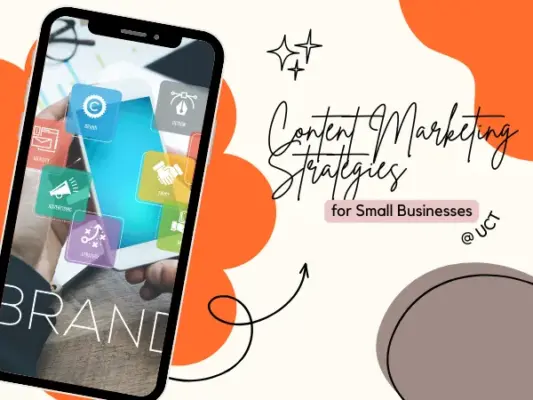
Introduction
In the digital age, content marketing has become a powerful tool for small businesses to attract, engage, and retain customers. Unlike traditional advertising, content marketing focuses on creating valuable and relevant content to build relationships with your audience. For small businesses, a well-crafted content marketing strategy can drive growth, enhance brand visibility, and foster customer loyalty. This blog explores effective content marketing strategies tailored to small businesses, helping you leverage this approach to achieve your business goals.
1. Define Your Goals and Objectives
Before diving into content creation, it’s crucial to define what you want to achieve with your content marketing efforts. Set clear, measurable goals such as increasing website traffic, generating leads, or improving brand awareness. Align your content strategy with these objectives to ensure that your content serves a purpose and drives tangible results.
2. Know Your Audience
Understanding your target audience is key to creating content that resonates. Conduct market research to identify your audience’s demographics, interests, and pain points. Create detailed buyer personas to represent your ideal customers and use these insights to tailor your content to their needs and preferences.
3. Develop a Content Calendar
A content calendar helps you plan and organize your content marketing efforts. It ensures a consistent flow of content and allows you to strategically align your posts with key dates, events, and promotions. Plan your content topics, publishing dates, and distribution channels in advance to stay organized and focused.
4. Create High-Quality, Valuable Content
Quality over quantity is the cornerstone of successful content marketing. Focus on creating content that provides value to your audience. This could include how-to guides, industry insights, case studies, and helpful tips. Ensure that your content is well-researched, engaging, and actionable, addressing your audience’s pain points and interests.
5. Leverage Multiple Content Formats
Diversify your content to reach your audience through various channels. Different formats, such as blog posts, infographics, videos, podcasts, and social media updates, cater to different preferences and can enhance engagement. Experiment with different formats to see what resonates most with your audience.
6. Optimize for SEO
Search Engine Optimization (SEO) is essential for increasing the visibility of your content. Use relevant keywords, optimize meta descriptions, and incorporate internal and external links to improve your search engine rankings. High-quality, SEO-optimized content can drive organic traffic to your website and enhance your online presence.
7. Utilize Social Media
Social media platforms are powerful tools for content distribution and audience engagement. Share your content across social media channels to reach a broader audience and encourage interaction. Use social media to promote your content, engage with followers, and build a community around your brand.
8. Engage with Your Audience
Content marketing is not a one-way communication channel. Engage with your audience by responding to comments, answering questions, and encouraging feedback. Building a relationship with your audience fosters trust and loyalty, making them more likely to engage with your content and support your business.
9. Monitor and Analyze Performance
Regularly track and analyze the performance of your content marketing efforts. Use analytics tools to measure key metrics such as website traffic, social media engagement, and conversion rates. Analyze this data to understand what’s working, what needs improvement, and how you can refine your strategy for better results.
10. Adapt and Evolve
The digital landscape is constantly changing, and so are your audience’s preferences and behaviors. Stay adaptable and be willing to adjust your content marketing strategy based on performance data and industry trends. Continuously evolving your approach ensures that your content remains relevant and effective.
Conclusion
Content marketing is a dynamic and effective strategy for small businesses looking to connect with their audience, build brand awareness, and drive growth. By defining clear goals, understanding your audience, creating valuable content, and leveraging multiple formats and channels, you can develop a robust content marketing strategy that delivers results. Monitor your performance, stay adaptable, and continue to refine your approach to stay ahead in the competitive digital landscape.